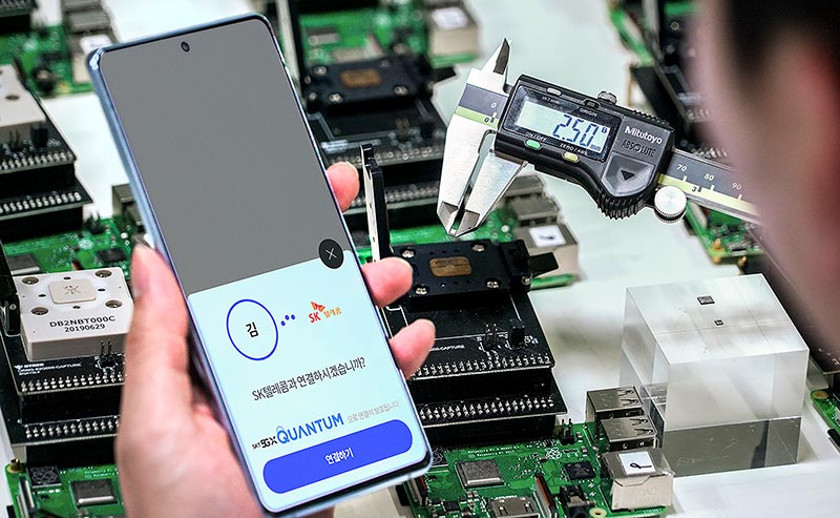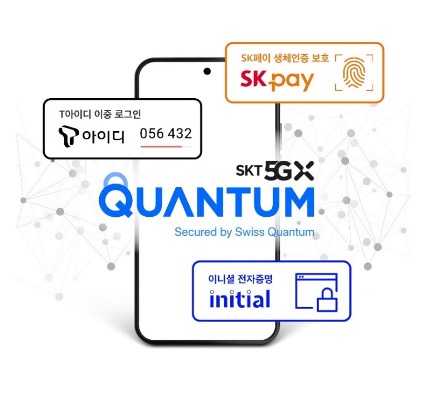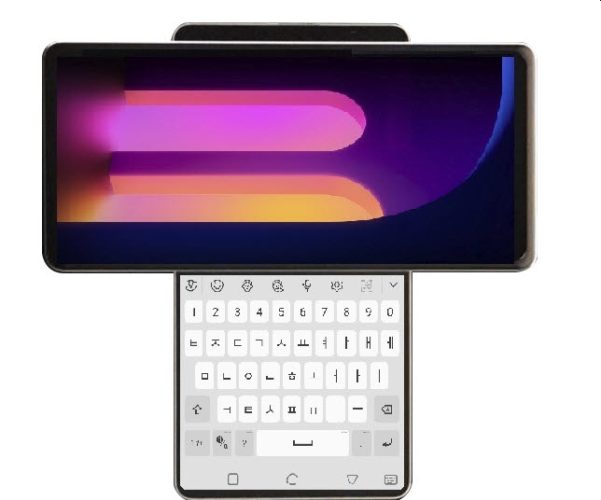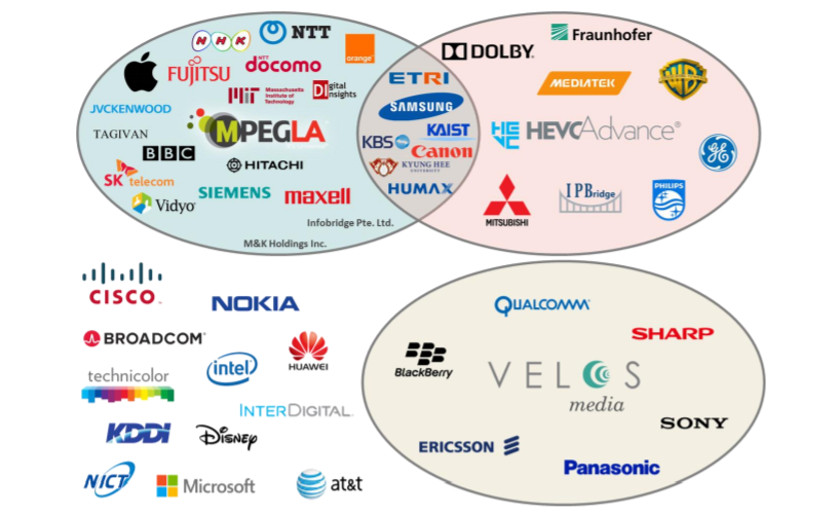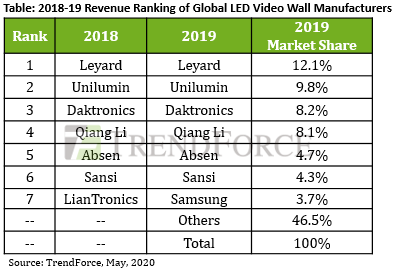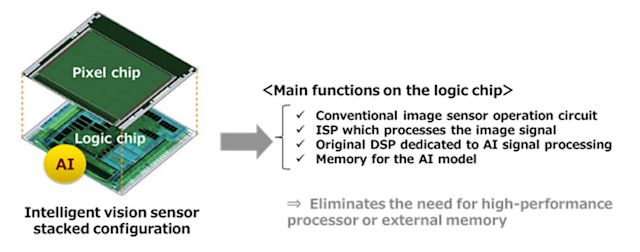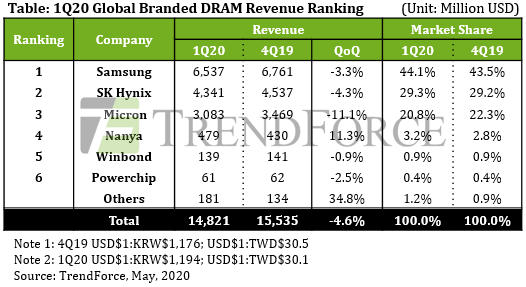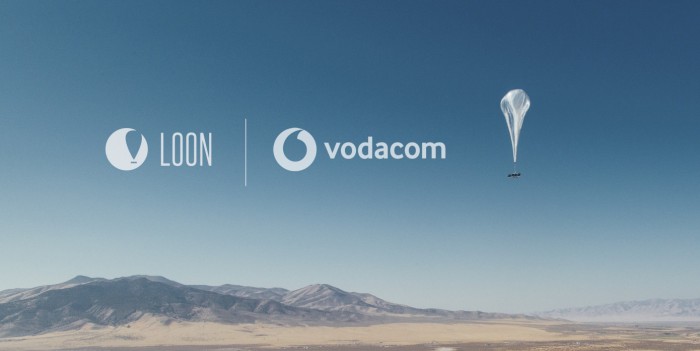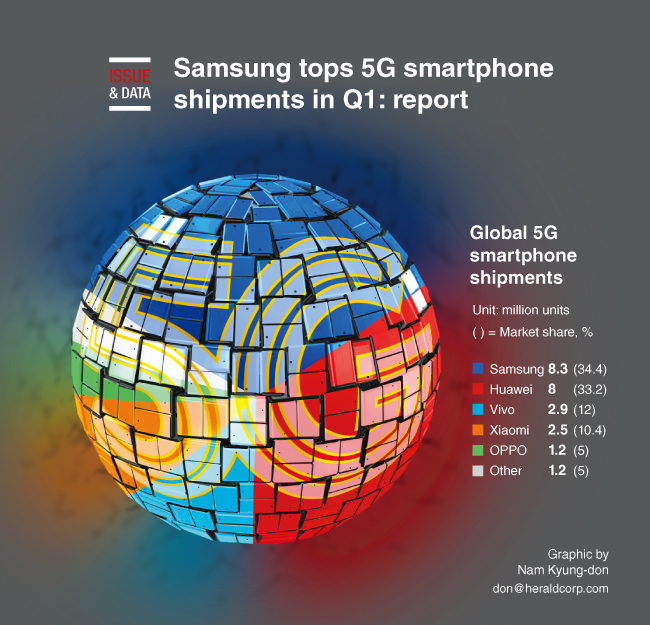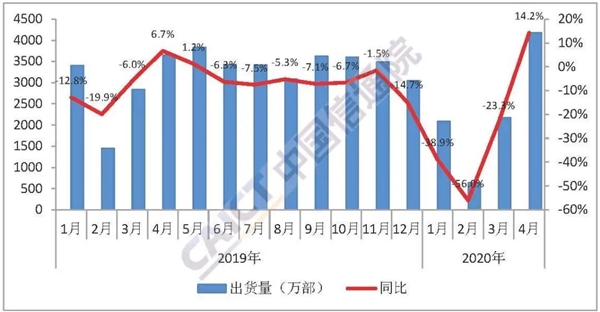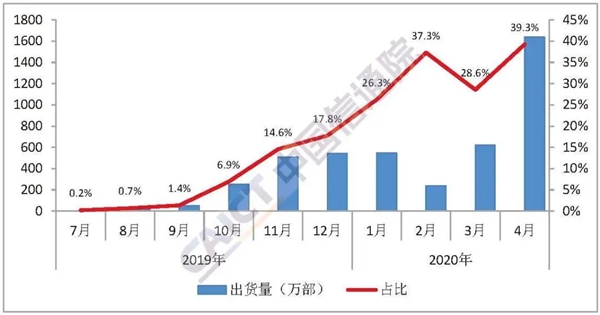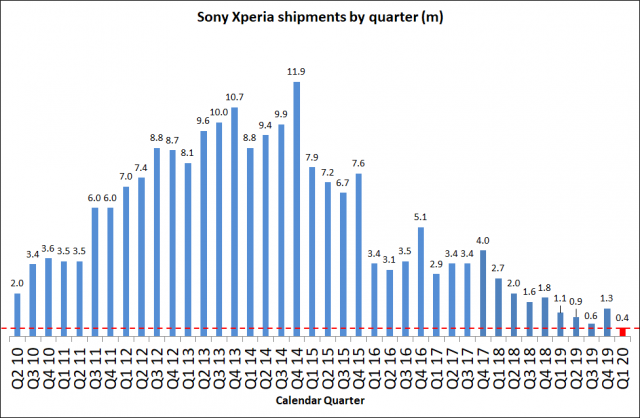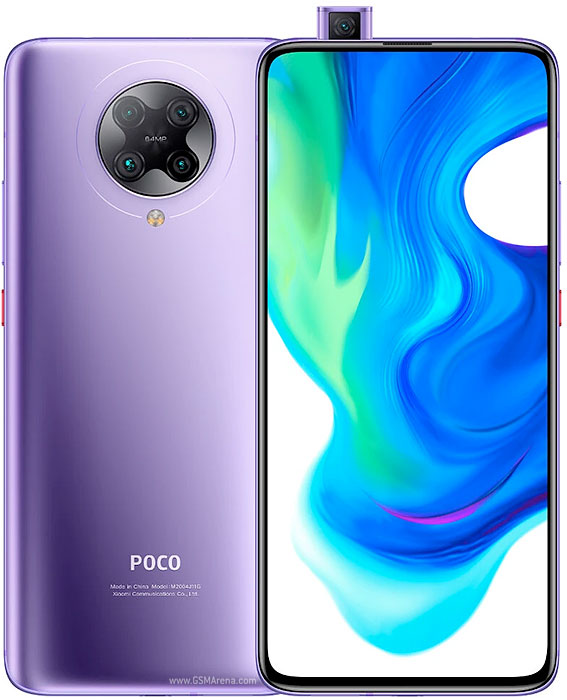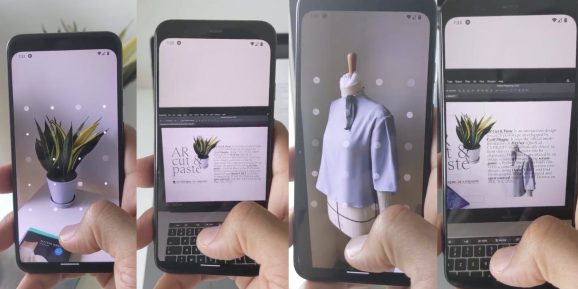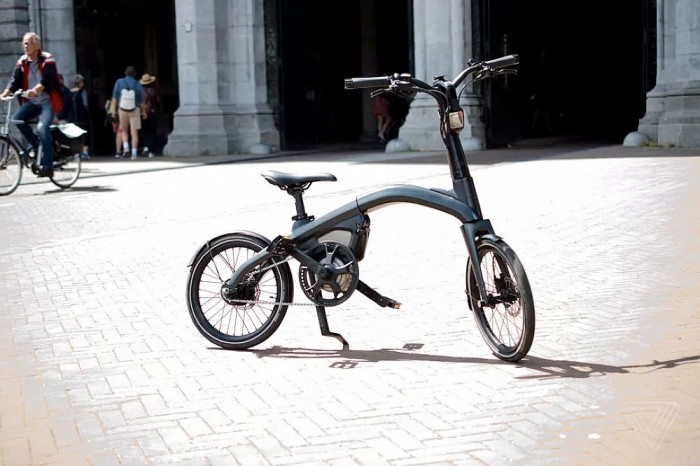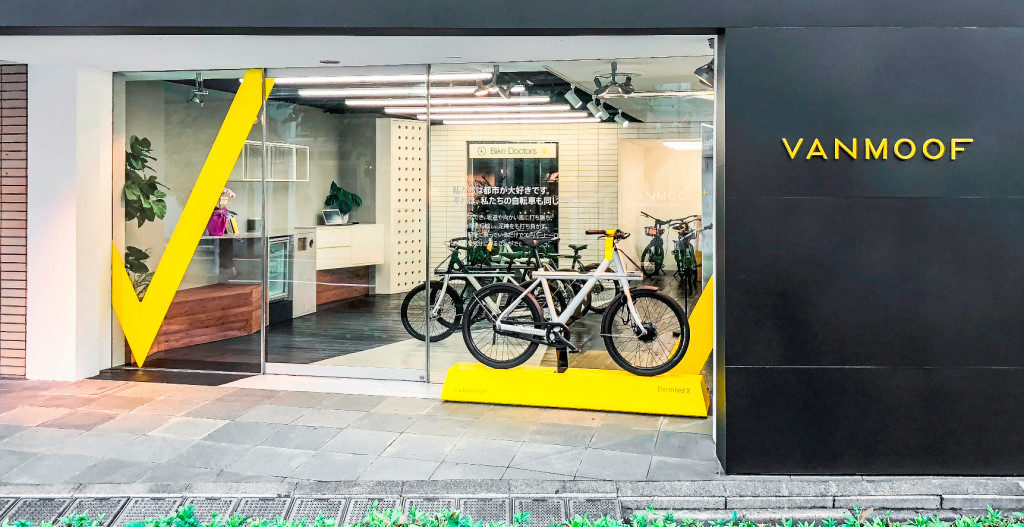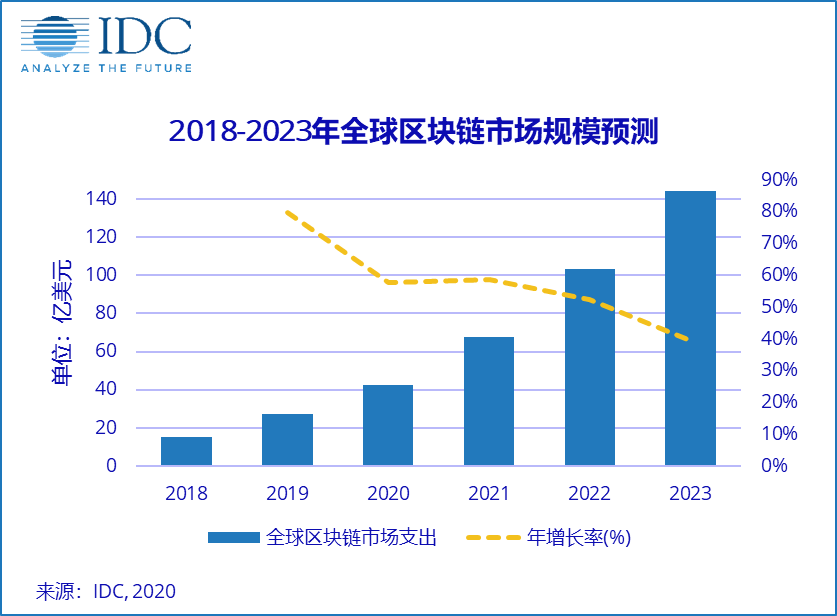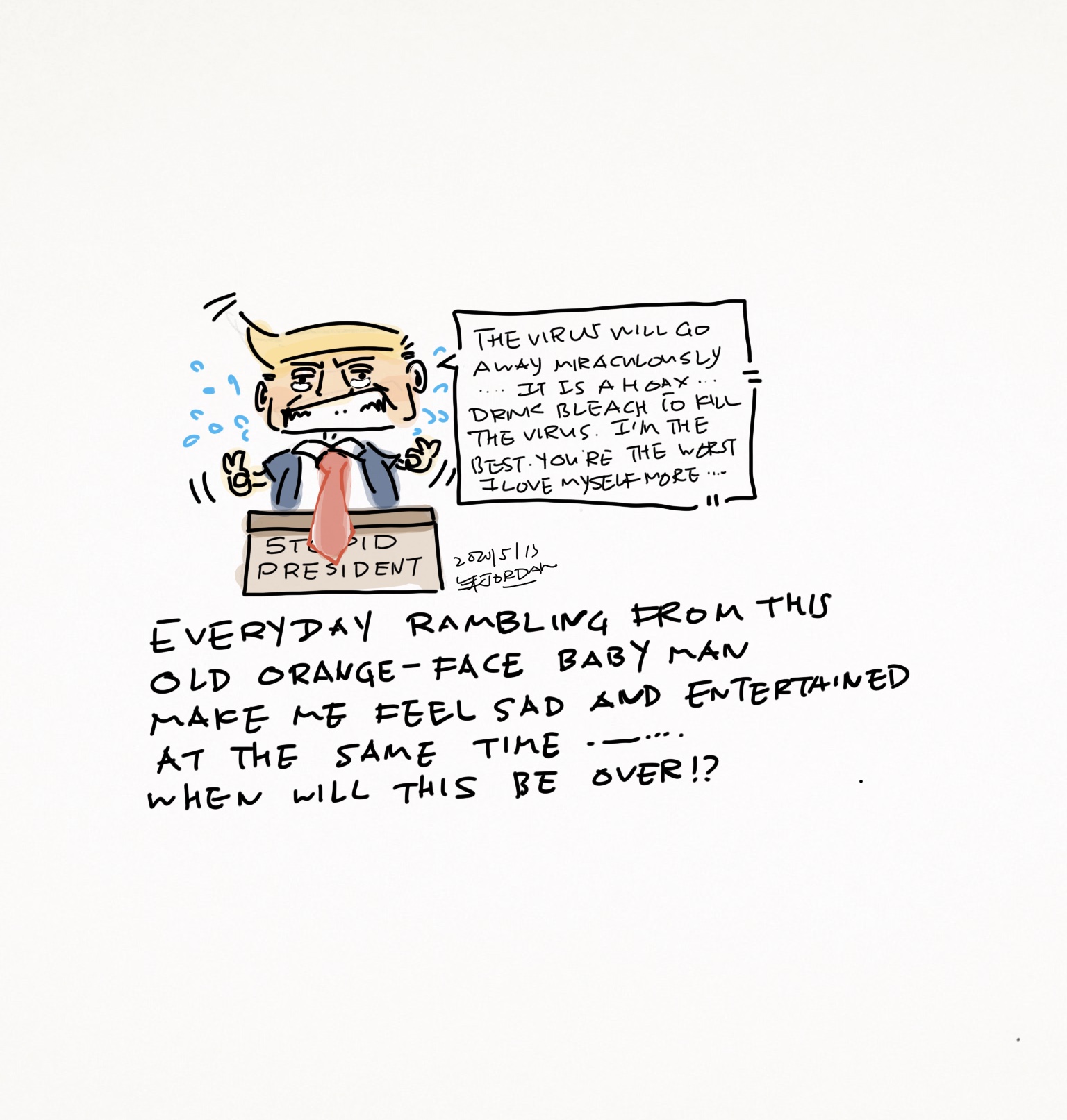
5-14 #MoveOn: Huawei is allegedly working on an in-folding foldable phone, which will be aggressively priced; Samsung and SK Telecom have announced the Galaxy A Quantum smartphone, equipped with a quantum random number generation (RNG) chipset; etc.
Chipsets
Intel Capital has announced new investments totalling USD132M in 11 technology startups. These companies bring to market breakthrough innovations in artificial intelligence (AI), autonomous computing and chip design. The companies joining Intel Capital’s portfolio are Anodot, Astera Labs, Axonne, Hypersonix, KFBIO, Lilt, MemVerge, ProPlus Electronics, Retrace, Spectrum Materials and Xsight Labs. (TechCrunch, VentureBeat, Intel, Sina)
Samsung and SK Telecom have announced the Galaxy A Quantum smartphone, equipped with a quantum random number generation (RNG) chipset for improved security. The quantum RNG chip has an on-board CMOS image sensor to detect photons, with this being the basis for the random number generation used for encryption keys. SK says that the quantum RNG chip will be used in conjunction with biometric-backed mobile payments at offline retailers. (Android Authority, SK Telecom, CN Beta)
Touch Display
LG may be developing a dual-screen smartphone that features 2 screens that sit on top of one another — and a swivel that can rotate the top screen to reveal a T-shaped design. (Liliputing, ET News, Korea Herald, My Drivers)
Click Materials, pioneer of a next-generation electrochromic glass technology, has announced a development partnership with leading glass producer Cardinal Glass Industries aimed at bringing Click’s smart window solution to North America. Click has developed a patented technology that significantly reduces production costs of electrochromic glass by 60%, making smart windows more accessible for homeowners seeking ways to lessen energy consumption and costs. (TechCrunch, PR Web)
The High Efficiency Video Codec (HEVC) promises to reduce video file sizes while offering better quality than current video codecs used in many devices. This is particularly important for smartphones and high-resolution streaming, as 4K video becomes commonplace and 8K enters the fray. However, Huawei, Qualcomm, and Samsung have just backed an alternative to HEVC, dubbed MPEG-5 EVC (Essential Video Coding). The new codec will be used for 4K, 8K, VR, AR, and more video content. (Android Authority, IBC)
According to TrendForce, owing to the continued shrinking of pixel pitches, LED shipment for video wall is expected to undergo further growth in 2020. Although the current yearly revenue forecast has been revised from the pre-pandemic figure of USD2.261B down to USD1.946B, it still represents a 3.7% YoY growth. (Laoyaoba, TrendForce, TrendForce, press)
According to Ross Young, CEO of Display Supply Chain Consultants, Huawei is working on an in-folding foldable phone, which will be aggressively priced. He adds that the manufacturer has ordered 500,000 units, saying that it could be the “next big product” in the foldable arena. (Android Authority, YouTube, Gizmo China, Sohu)
Camera
Sony is unveiling the IMX500 and IMX501, two 12.3MP sensors with onboard AI processing chips. They will be able to handle “light” machine learning tasks — like recognizing if a stray dog or cat enters your backyard — on their own, without sending any video to the cloud or another system. The new sensor products feature a stacked configuration consisting of a pixel chip and logic chip. (Engadget, Sony, CN Beta)
Memory
RAM suppliers were able to successfully reduce their inventories in 1Q20, with significantly lower inventory levels at the end of 1Q20 compared to the beginning of the year. Hence, suppliers are no longer under imminent pressure to slash prices, and overall DRAM ASP rose by about 0%-5% QoQ. However, while governments responded to the COVID-19 pandemic by implementing citywide and nationwide lockdown policies, the resultant logistic disruptions in turn affected DRAM bit shipment as well. Therefore, in spite of the minor rise in ASP, global DRAM revenue decreased by 4.6% QoQ, reaching USD14.8B. (TrendForce, TrendForce, press)
Connectivity
Loon, a unit of Google’s owner Alphabet, which uses high-altitude balloons to provide mobile internet to remote areas, has signed a deal with Vodacom to expand the South African mobile operator’s network in Mozambique. Using the Loon solution, Vodacom will expand mobile network access to Cabo Delgado and Niassa, two provinces that have proven hard to cover in the past due to their size, topography and low population density. (CN Beta, Reuters, RCR Wireless, Fierce Wireless, Loon)
Phone
According to Strategy Analytics, global 5G smartphone shipments grows to 24.1M in 1Q20. Samsung is the top vendor of 5G smartphones, shipping 8.3M units globally in 1Q20. Huawei comes in a close second, shipping 8M 5G smartphones, as vivo, Xiaomi and OPPO have rounded out the top 5. (GSM Arena, Korea Herald)
The COVID-19 global pandemic has undoubtedly affected the mobile phone industry. However, according to China Information and Communications Technology Institute, the Chinese mobile phone market has recovered in Apr 2020 with 14.2% YoY increase in shipments. (Neowin, Reuters, Gizmo China, Android Central, My Drivers, CAICT, report)
Apple has reportedly advised one of its Chinese AirPods assemblers, Luxshare-ICT to make a major investment in an iPhone and MacBook metal casing provider, Catcher Technology, a move Apple hopes will create a formidable alternative to another of its longtime suppliers, Taiwan’s Foxconn. Luxshare-ICT, a fast-rising Chinese tech company known for its aggressive growth strategy, has been in talks with Catcher Technology, the world’s second-largest metal casing provider, for more than a year and has recently entered a deeper round of negotiations. (CN Beta, 9to5Mac, Asia Nikkei, TechNode)
U.S. President Donald Trump has extended for another year an executive order signed in May 2019 declaring a national emergency and barring U.S. companies from using telecommunications equipment made by firms posing a national security risk. The U.S. Commerce Department is also expected to extend again a license, set to expire on 15 May 2020, allowing U.S. companies to keep doing business with Huawei. (Android Authority, Reuters, RFI, DW News)
Sony has shipped just 400K smartphones in 1Q20, against a forecast of 700K smartphones. This means that overall, Sony has shipped 3.2M smartphones during the fiscal year 2019 – this is half of what it shipped the year before (6.5M smartphones). (GSM Arena, Sony, Xperia Blog)
Xiaomi’s POCO F2 Pro is official – 6.67” 1080×2400 FHD+ Super AMOLED, Qualcomm Snapdragon 865, rear quad 64MP-5MP telemacro (50mm)-13MP ultrawide-2MP depth + front pop-up 20MP, 6+128 / 8+256GB, Android 10.0, under display fingerprint scanner, 4700mAh 30W, EUR499 / EUR599. (GSM Arena, GizChina)
PC Tablets
Amazon has refreshed its tablet line-up with an “all-new” Fire HD 8, a Fire HD 8 Plus and new version of the Fire HD 8 Kids Edition, features 8” 1280×800 HD display, 2.0GHz quad-core CPU, rear 2MP + front 2MP, 12 hours single-charge battery life: Fire HD 8 (2020) – 2+32 / 2+64GB, Amazon Fire OS, from USD89.99. Fire HD 8 Plus (2020) – 3+32 / 3+64GB, Amazon Fire OS, 9W charger, optional wireless charging dock, starts from USD139.99. Fire HD 8 Kids Edition – 2+32 / 2+64GB, with a colourful “kid-proof” case, USD139.99. (Gizmo China, Pocket-Lint, GSM Arena, The Verge)
Augmented / Virtual Reality
Sony has revealed that lifetime sales for PlayStation 4 (PS4) have now passed 110.4M consoles. The PS4 is launched in 2013. Sony has shipped out 13.6M PS4 in the fiscal year 2019 ended 31 Mar 2020. (VentureBeat, VGameZone)
AR Copy Paste app can be held up to plants, clothes, books, magazines, and other physical objects, using a simple interface to snap a photo of the item before transferring it to an identified space in an open document. (VentureBeat, AR Copy Paste)
Alphabet-owned Google’s planned USD2.1B buy of fitness trackers company Fitbit may harm consumers and hinder innovation, says European consumer group BEUC, calling it a game-changer deal in the health and digital markets. (CN Beta, Reuters, Bloomberg)
Automotive
Waymo has added an additional USD750M to the USD2.25B funding round that it first announced in March, bringing the total size of the financing (its first from investors outside of Alphabet) to USD3B. (TechCrunch, Waymo, Leiphone, 163)
General Motors (GM) has killed its first electric bike, ARIV. It is released in 2019 in a handful of countries in Europe. Due to COVID-19, the company has decided to wind down its e-bike production. (The Verge, Small Tech News, CN Beta)
VanMoof, a Dutch company that builds and sells a range of electric bikes, has raised EUR12.5M (USD13.5M) in a round of funding from Balderton Capital and Sinbon Electronics. The company sells electric bikes through its own online store and in its own branded brick-and-mortar outlets in New York, Seattle, San Francisco, London, Amsterdam, Tokyo, Paris, and elsewhere. (VentureBeat)
Fintech
IDC predicts that in 2020, global blockchain market expenditures will be reduced due to the global pandemic, reaching USD4.28B. IDC predicts that the total expenditure on China’s blockchain solutions will reach USD470M in 2020 (a decrease of about 12% compared to the pre-outbreak forecast); during the forecast period 2019-2023, the compound annual growth rate of 60% (down about 10%). (IDC, Laoyaoba)

